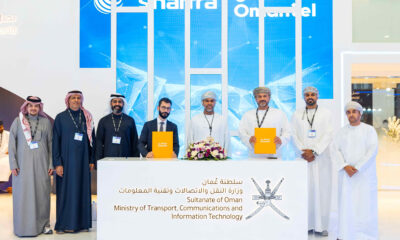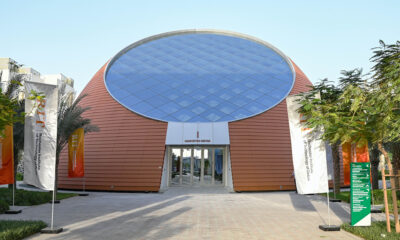News
Metaverse Will Bring $15B Annually To Gulf Economies By 2030
The travel and tourism industries alone will gain $3.2 billion once the virtual universe reaches its full potential.

Saudi Arabia and the United Arab Emirates are already heavily invested in the development of the Metaverse, and the tech startups are playing a pivotal role in its construction. According to a recent report compiled by Strategy& Middle East, that investment will likely pay off to the tune of a cool $15 billion in annual revenue by 2030.
“The projections assessed growth in the component technologies, platforms, hardware, and software, as well as the economic contribution of new metaverse applications such as content creation, shopping, and so on,” says Tony G. Karam, partner at Strategy& Middle East.
Out of the seven Emirates, Dubai is emerging as the pre-eminent metaverse economy. Experts predict that the region’s digital strategy will bring a $4 billion boost to GDP, with 40,000 new jobs created in the process. The UAE as a whole has embraced Web3.0 enthusiastically and recently established the first metaverse incubator.
Meanwhile, in Saudi Arabia, NEOM — a $500 billion futuristic metropolis on the Red Sea — will also build a parallel digital version of its cityscape, enabling people to coexist in both the real world and the Metaverse simultaneously.
Also Read: The UAE Has Launched A Program To Assist 100 Startups
“The Metaverse holds a world of possibilities that extends beyond next-generation gaming and internet-based home buying or shopping. It will change how we work, transact, plan, design, build, shop, recreate, travel, and live. In a regional context, the Metaverse’s potential to energize and transform key sectors in the Gulf Cooperation Council (GCC) countries is enormous,” says Dany Karam, partner at Strategy& Middle East.
Breaking down Strategy&’s predicted annual raise in GDP reveals the following figures:
- Saudi Arabia: $7.6 billion
- UAE: $3.3 billion
- Qatar: $1.6 billion
- Kuwait: $ 1 billion
- Oman: $0.8 billion
- Bahrain: $0.4 billion
Although the Metaverse is still relatively unknown to the general public, experts believe that in the near future, a thriving digital tourism sector will emerge, with tours to famous UNESCO World Heritage Sites, concerts, festivals and sports events all having their own digital versions.
News
Rabbit Expands Hyperlocal Delivery Service In Saudi Arabia
The e-commerce startup is aiming to tap into the Kingdom’s underdeveloped e-grocery sector with a tech-first, locally rooted strategy.

Rabbit, an Egyptian-born hyperlocal e-commerce startup, is expanding into the Saudi Arabian market, setting its sights on delivering 20 million items across major cities by 2026.
The company, founded in 2021, is already operational in the Kingdom, with its regional headquarters now open in Riyadh and an established network of strategically located fulfillment centers — commonly known as “dark stores” — across the capital.
The timing is strategic: Saudi Arabia’s online grocery transactions currently sit at 1.3%, notably behind the UAE (5.3%) and the United States (4.8%). With the Kingdom’s food and grocery market estimated at $60 billion, even a modest increase in online adoption could create a multi-billion-dollar opportunity.
Rabbit also sees a clear alignment between its business goals and Saudi Arabia’s Vision 2030, which aims to boost retail sector innovation, support small and medium-sized enterprises, attract foreign investment, and develop a robust digital economy.
The company’s e-commerce model is based on speed and efficiency. Delivery of anything from groceries and snacks to cosmetics and household staples is promised in 20 minutes or less, facilitated by a tightly optimized logistics system — a crucial component in a sector where profit margins and delivery expectations are razor-thin.
Despite the challenges, Rabbit has already found its stride in Egypt. In just over three years, the app has been used by 1.4 million customers to deliver more than 40 million items. Revenue has surged, growing more than eightfold in the past two years alone.
Also Read: Top E-Commerce Websites In The Middle East In 2025
CEO and Co-Founder Ahmad Yousry commented: “We are delighted to announce Rabbit’s expansion into the Kingdom. We pride ourselves on being a hyperlocal company, bringing our bleeding-edge tech and experience to transform the grocery shopping experience for Saudi households, and delivering the best products – especially local favorites, in just 20 minutes”.
The company’s growth strategy avoids the pitfalls of over-reliance on aggressive discounting. Instead, Rabbit leans on operational efficiency, customer retention, and smart scaling. The approach is paying off, having already attracted major investment from the likes of Lorax Capital Partners, Global Ventures, Raed Ventures, and Beltone Venture Capital, alongside earlier investors such as Global Founders Capital, Goodwater Capital, and Hub71.


























